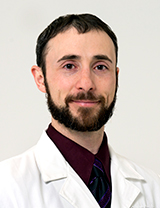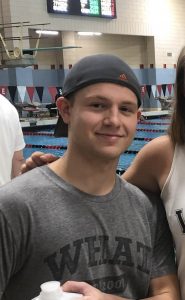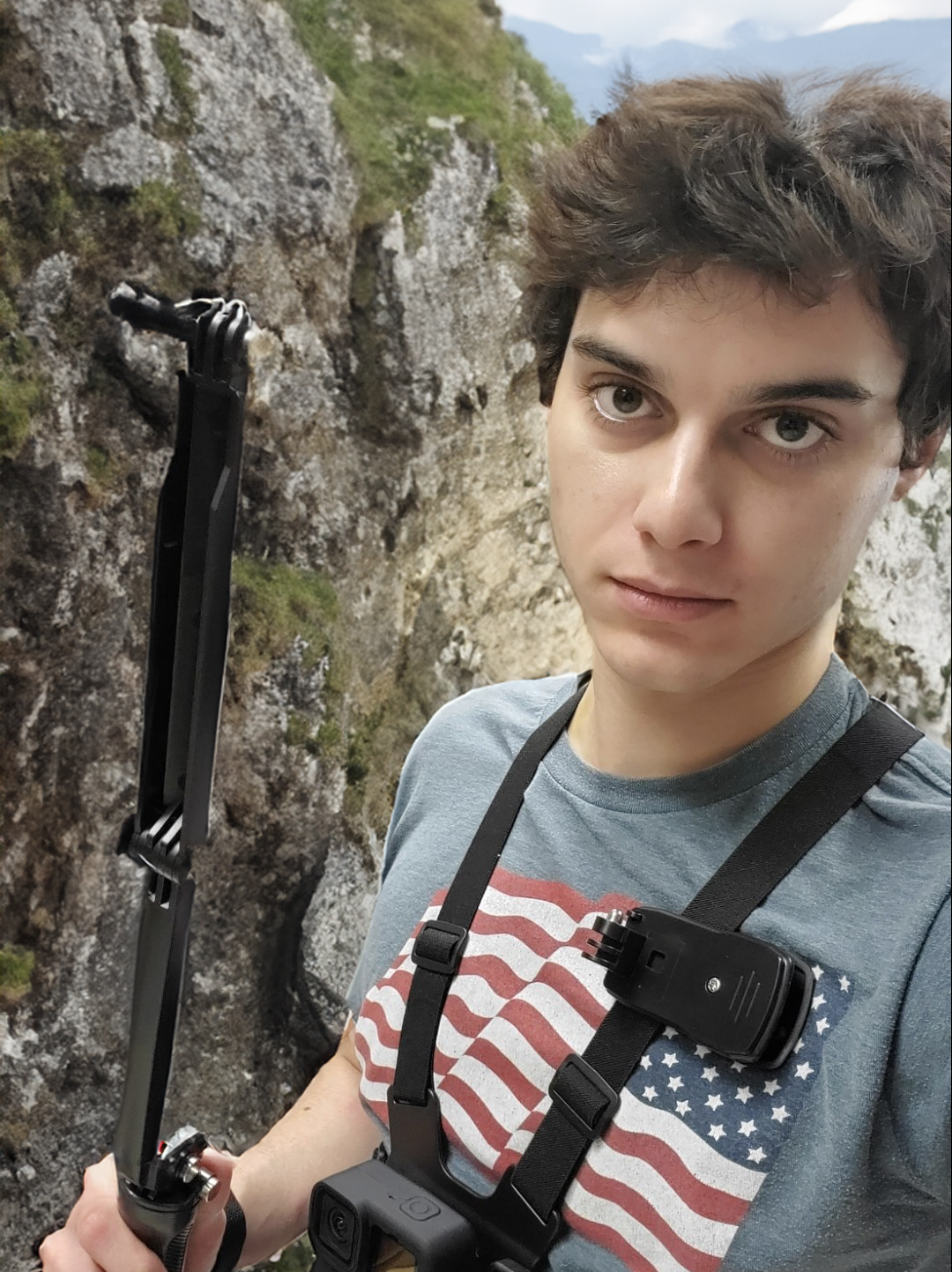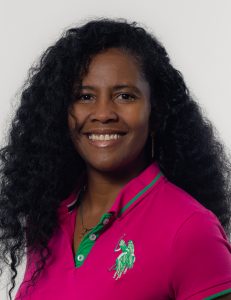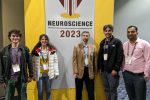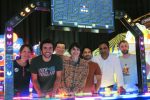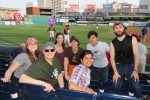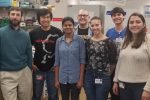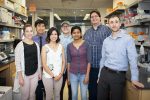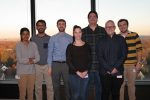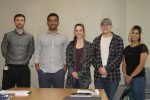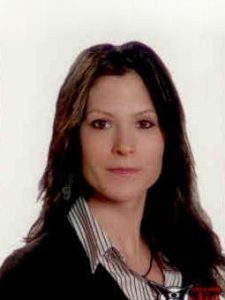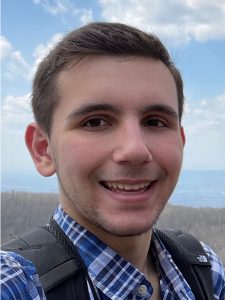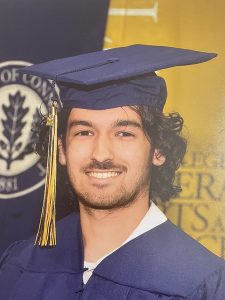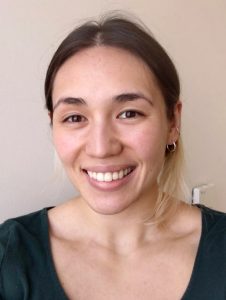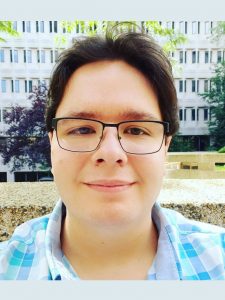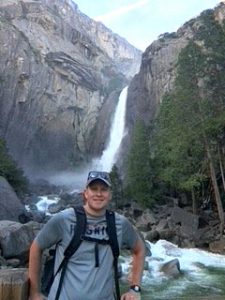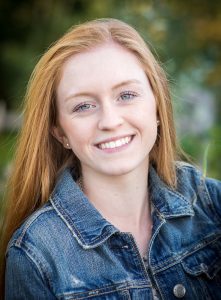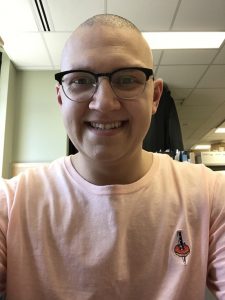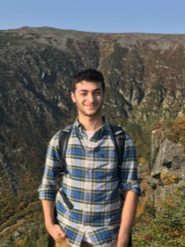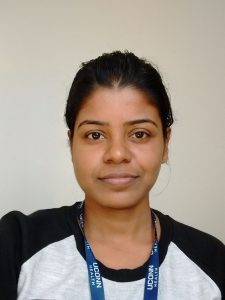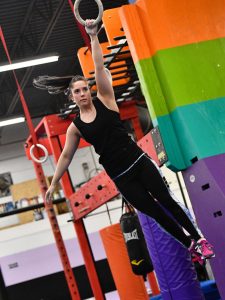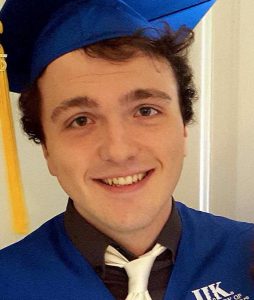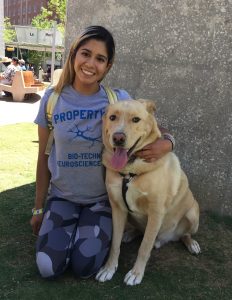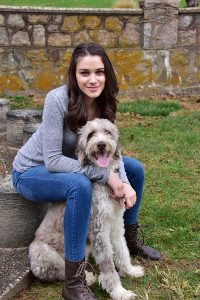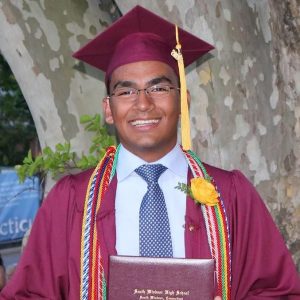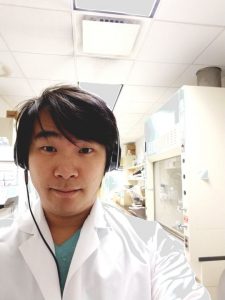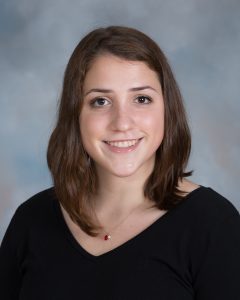David C. Martinelli, Ph.D.
Associate Professor of Neuroscience
Location: L4003
Phone: 860-679-2271
Email: davidmartinelli@uchc.edu
David Martinelli received his Bachelor of Science degree in molecular genetics from the University of Rochester graduating summa cum laude. During this time, he spent one semester studying abroad at the University of Adelaide in Australia and one summer at Pfizer Pharmaceuticals in Groton Connecticut studying embryonic stem cells.
For graduate school, he attended the Johns Hopkins University and joined the laboratory of Dr. Chen-Ming Fan at the Carnegie Institution for Science, Department of Embryology. In the Fan lab, David Martinelli studied the sonic hedgehog signaling pathway, an essential pathway involved in the development of numerous tissues and organs and implicated in the progression of many cancers. He discovered that the hedgehog binding protein GAS1 enhances hedgehog signaling and transforms hedgehog protein gradients into the observed morphogenic activity gradients that specify different cell fates. This work had broad implications, as every developmental and cancerous context involving hedgehog signaling would be modified by GAS1 expression.
In 2009 for his post-doctoral work, he switched fields into neuroscience, joining the laboratory of 2013 Nobel laurate Thomas Sudhof at Stanford University. There, Dr. Martinelli studied the formally orphaned G protein-coupled receptor (GPCR) BAI3 and identified C1Q-like (C1QL) proteins as the specific ligand that interacts with BAI3 and functions to promote excitatory synapse formation and maintenance. His extensive genetics studies on C1ql3 knockout mice demonstrated that they had a variety of behavioral phenotypes and may serve as a model system for multiple neuropsychiatric diseases such as ADHD and addiction predisposition. Moreover, his mechanistic studies provided the first evidence that C1QL3 regulates synapse maintenance in vivo, by identifying a defined brain circuit controlling emotional memory that is dependent on C1QL3-positive synapses. As a whole, his work establishes C1QL proteins as novel regulators of synapses.
In 2016, Dr. Martinelli joined the faculty of the Neuroscience Department at UConn Health. Here, the Martinelli lab performs basic and translational research on C1Q-like proteins and their binding partners.
Vivian Taker
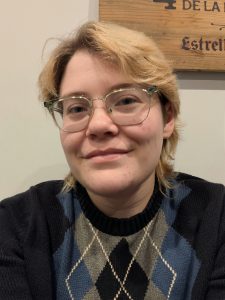
Research Assistant
Location: L4008
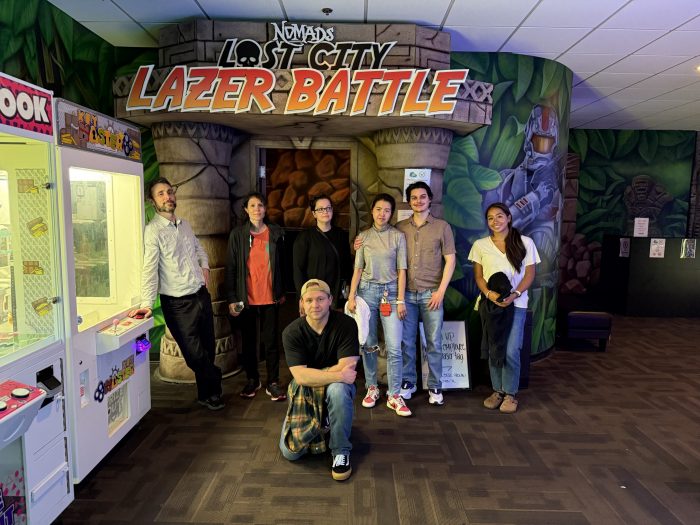 Martinelli Lab outing at Nomads Arcade - May 2025
Martinelli Lab outing at Nomads Arcade - May 2025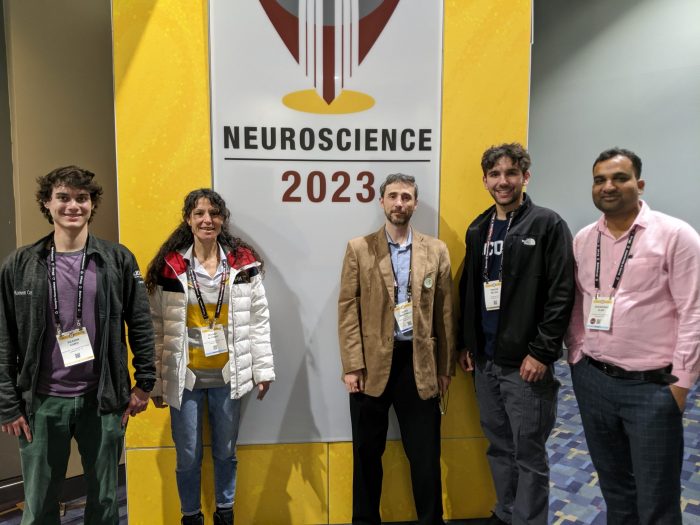 Martinelli Lab at the Society for Neuroscience conference - 2023
Martinelli Lab at the Society for Neuroscience conference - 2023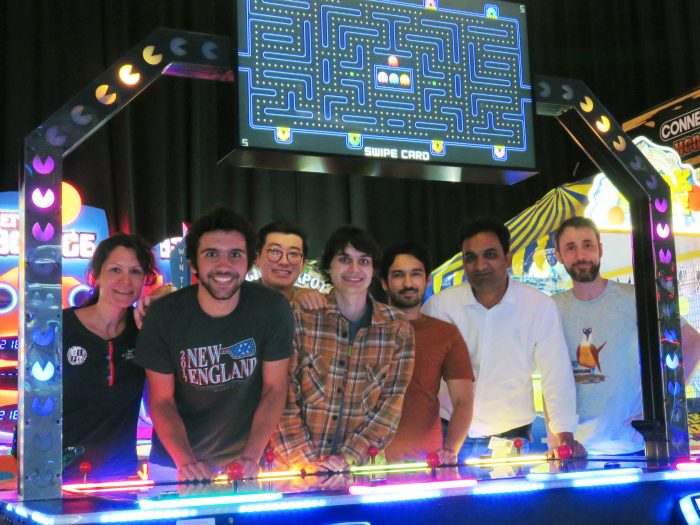 Martinelli Lab goes to Dave & Busters - May 2023
Martinelli Lab goes to Dave & Busters - May 2023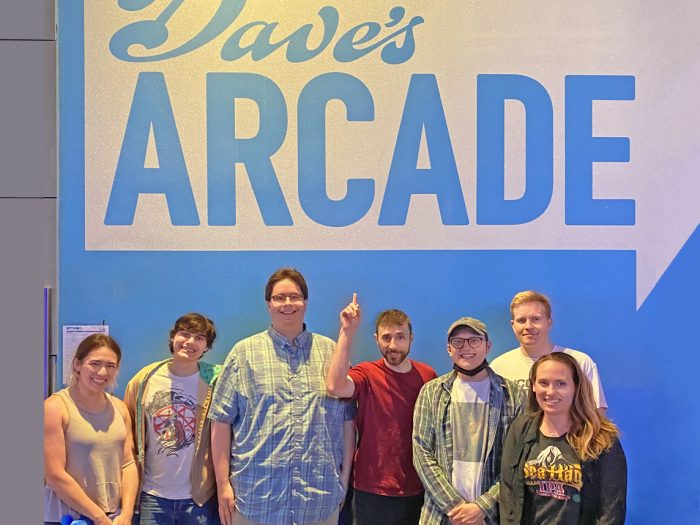 Martinelli Lab goes to Dave and Busters - June 2021
Martinelli Lab goes to Dave and Busters - June 2021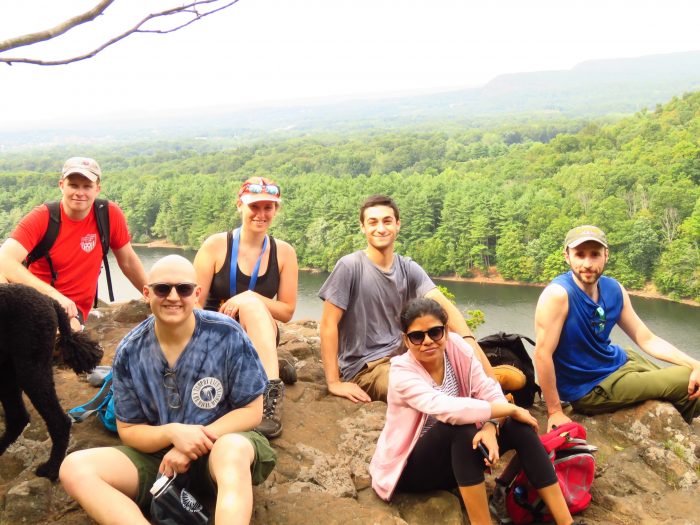 Martinelli Lab hikes to the top of Chauncey Peak - August 2020
Martinelli Lab hikes to the top of Chauncey Peak - August 2020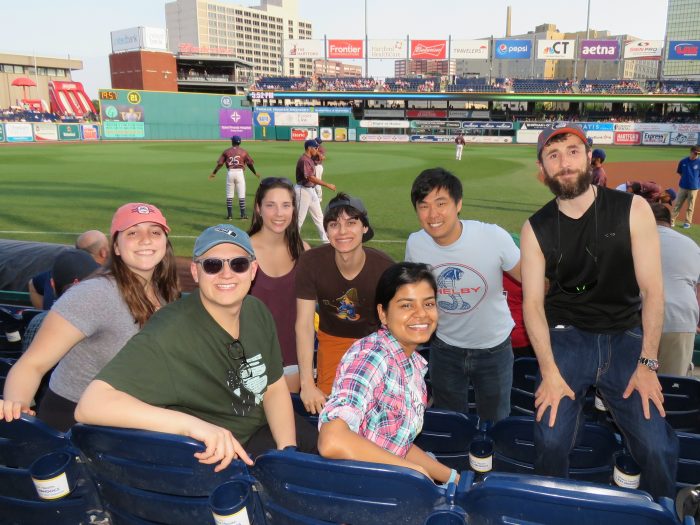 Martinelli Lab goes to a baseball game - July 2019
Martinelli Lab goes to a baseball game - July 2019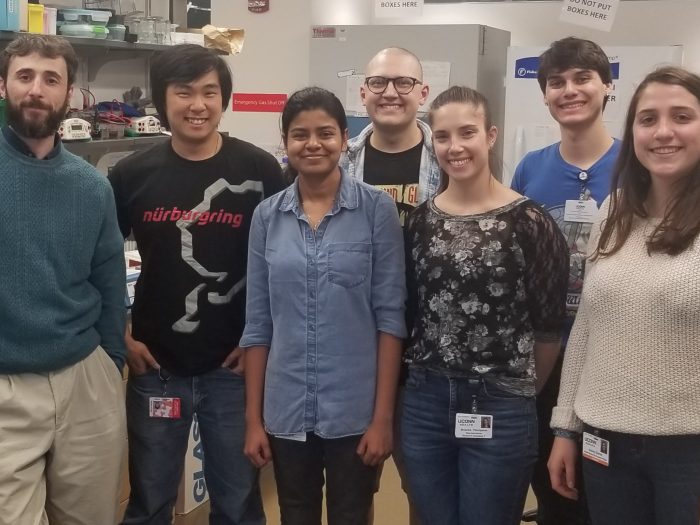 Martinelli Lab - June 2019
Martinelli Lab - June 2019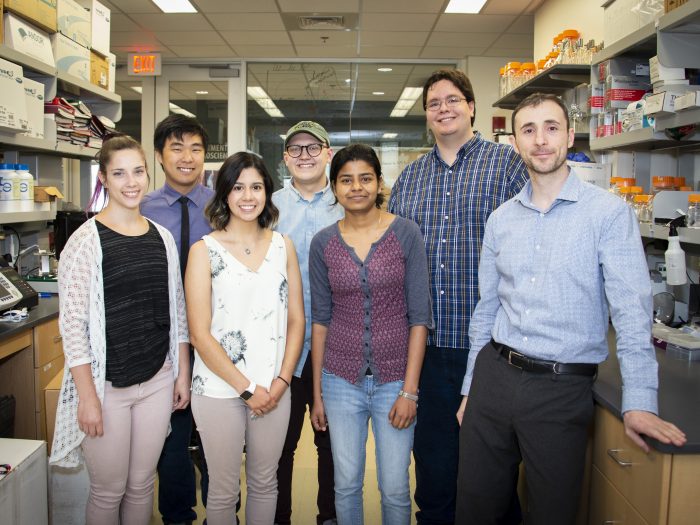 David Martinelli with members from the Martinelli lab. June 5, 2018. (Kristin Wallace/UConn Health Photo)
David Martinelli with members from the Martinelli lab. June 5, 2018. (Kristin Wallace/UConn Health Photo) May 2018
May 2018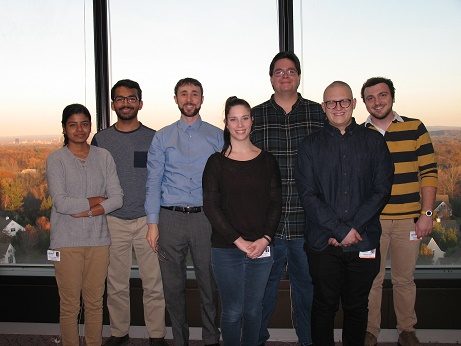 Martinelli Lab - November 2017
Martinelli Lab - November 2017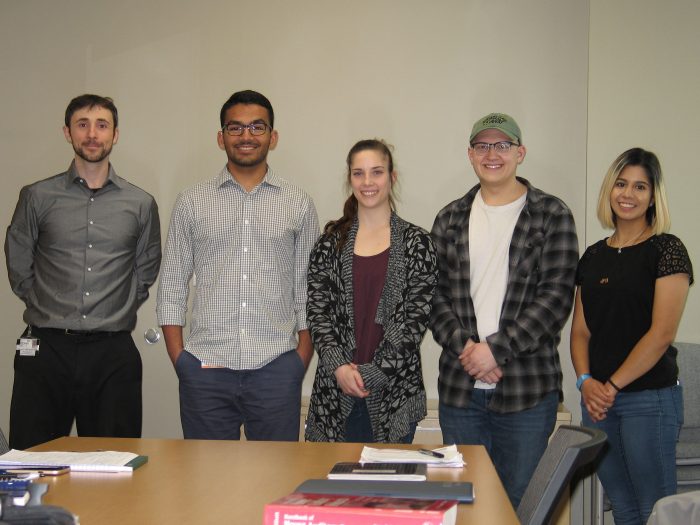 First Martinelli Lab meeting!
First Martinelli Lab meeting! Martinelli Lab opens. View from Neuroscience Department Conference Room. - October 2016
Martinelli Lab opens. View from Neuroscience Department Conference Room. - October 2016
Previous Lab Members
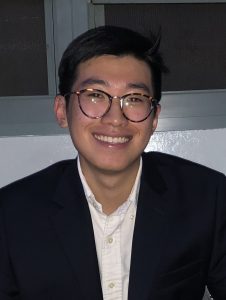
Hiu Cheung
Research Assistant
Location: L4008
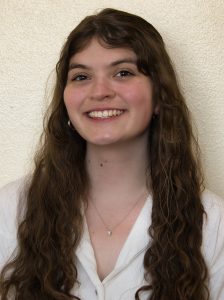
Lucille Papile
Ph.D. Rotation Student
Location: L4008
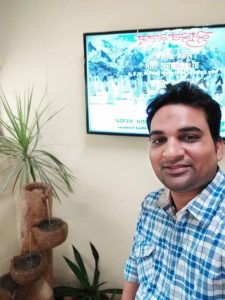
Shahnawaz Alam
Postdoctoral Fellow
Location: L4008
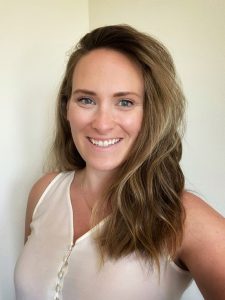
Lyndsay Kresic
Lab Manager, Research Assistant
